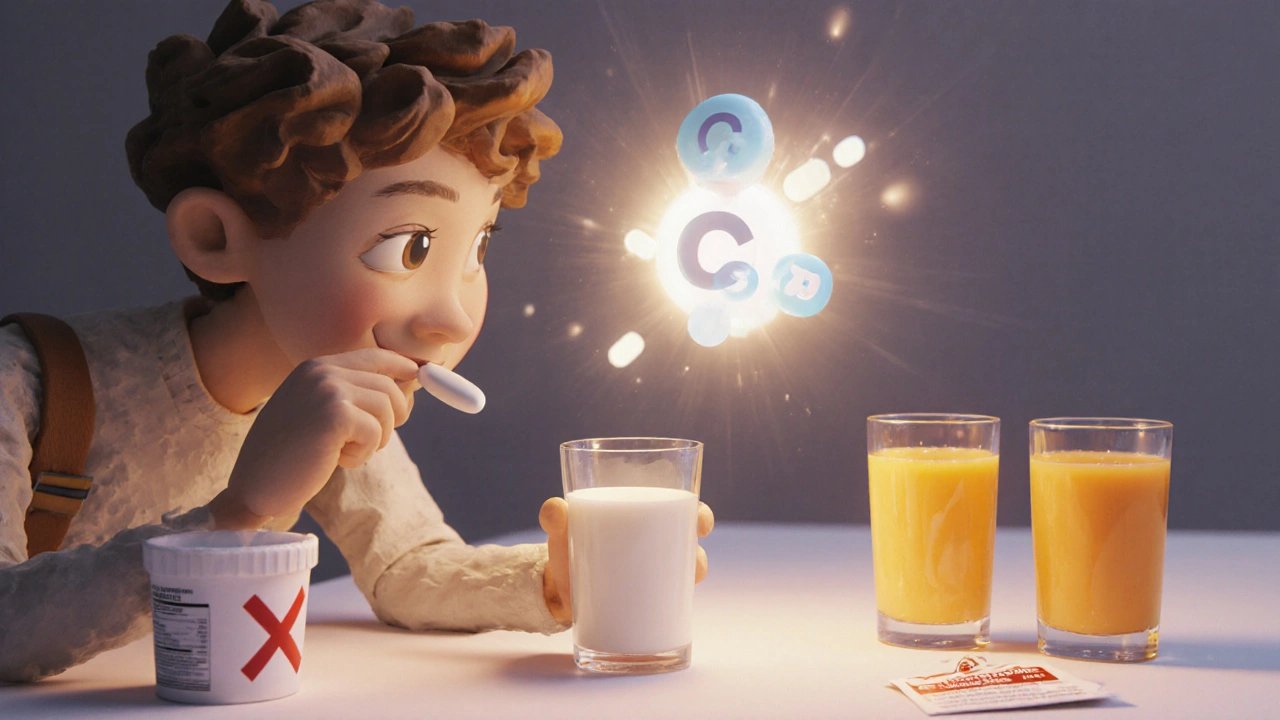Food-Drug Interactions: What You Eat Can Change How Your Medicine Works
When you take a pill, it doesn’t just disappear into your system like magic. What you eat, drink, or even skip can change how that medicine works—sometimes dangerously. Food-drug interactions, the way certain foods, drinks, or supplements affect how your body absorbs, breaks down, or uses a medication. Also known as dietary interactions with drugs, these aren’t just theoretical risks—they happen every day, often without people realizing it. A high-protein breakfast can block your Parkinson’s medication. Grapefruit juice can turn a harmless cholesterol pill into a heart risk. Even a simple glass of milk can stop antibiotics from working. These aren’t rare edge cases. They’re common, preventable, and often overlooked by both patients and doctors.
It’s not just about food. Drug absorption, how your body takes in a medication from your gut into your bloodstream is easily disrupted by calcium in dairy, iron in supplements, or fiber in bran cereal. Pharmacokinetics, the science of how your body moves a drug through absorption, distribution, metabolism, and excretion explains why some meds need to be taken on an empty stomach, while others work better with food. For example, the antibiotic doxycycline loses effectiveness if taken with dairy, while blood thinners like warfarin react unpredictably with leafy greens rich in vitamin K. Even something as simple as timing your protein intake can make the difference between steady motor control and sudden tremors in Parkinson’s patients.
These interactions aren’t random. They’re predictable. And they show up in real patient stories—like someone on lithium carbonate whose mood swings returned after switching generic brands, or a person on clopidogrel who had a heart attack because they took omeprazole for heartburn. The science behind it is solid: enzymes like CYP2C9 and CYP2D6 break down drugs, and what you eat can turn those enzymes up or down. That’s why genetic testing for drug metabolism is becoming more common. It’s not about being perfect. It’s about being aware. A few simple changes—like waiting two hours after a meal before taking your meds, or swapping grapefruit for an orange—can prevent hospital visits and save your life.
You’ll find real, practical examples here: how misoprostol works in emergencies, why lithium levels need constant monitoring, how omega-3s help with colitis without clashing with other meds, and why some antidepressants behave differently when taken with certain foods. These aren’t textbook theories. They’re lessons from people who lived through the consequences. If you take any medication regularly—whether it’s for blood pressure, depression, cholesterol, or something else—you need to know what’s in your fridge, pantry, and supplement cabinet could be working against you. This collection gives you the facts, the warnings, and the simple fixes that actually work.

